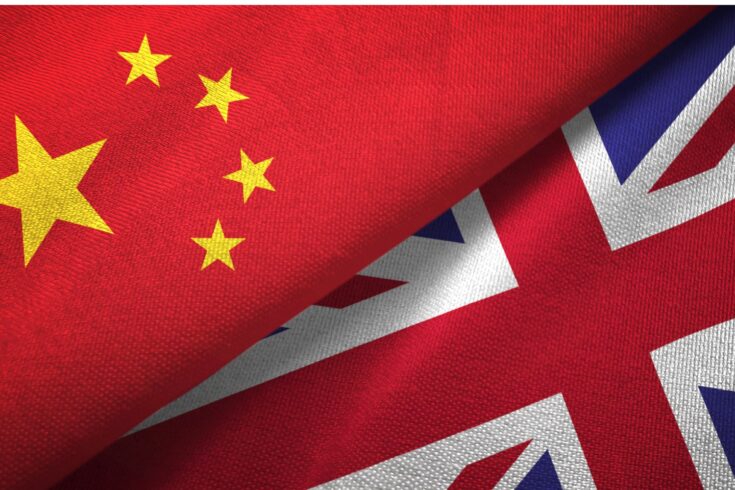UK-China knowledge sharing relationship
UK Research and Innovation’s (UKRI) Industrial Decarbonisation Challenge has fostered an important and ongoing knowledge sharing relationship with major carbon capture and storage and low-carbon hydrogen projects in China. This collaboration has been facilitated by UKRI’s Industrial Decarbonisation Challenge, the British Embassy in Beijing, ACCA21 (Ministry of Science and Technology, Chinese Government), UKRI China and Innovate UK KTN.
Recently, in November 2022, an event was held at Prince Philip House, the Royal Academy of Engineering where both UK and Chinese delegations convened to discuss the outcome of a global expert mission and the important next steps.
Common themes for knowledge exchange
Carbon capture and storage (CCS) is a major area in common for the UK and China with both countries positioned to become world leaders as the global market develops at pace this decade. Both countries can leverage their natural carbon dioxide (CO2) storage capacities, enabling the capture of industrial emissions then storage in safe geological formation. The UK recognises the importance of widescale deployment of CCS as critical step towards achieving net zero and China has 60 national policies emphasising CCS as a crucial technology including China’s 14th 5-year plan towards achieving carbon neutrality.
This year marks the 50th anniversary of UK-China diplomatic ambassadorial relations and industrial decarbonisation is a significant area in common. Those relationships have been strengthened through the productive dialogue facilitated by UKRI’s Industrial Decarbonisation Challenge and the global expert mission in February 2022 was the first time that hand-picked expert delegations from both countries had assembled for bilateral discussions on major CCS and hydrogen projects.
Global expert mission findings

Bryony Livesey, Industrial Decarbonisation Director, UKRI. Credit: Innovate UK KTN
In November 2022, at the Royal Academy of Engineering, UKRI’s Industrial Decarbonisation Director, Dr Bryony Livesey, presented the welcome address to a large audience including a summary of UK industrial decarbonisation policy. Mr Chen Qizhen, Deputy Director-General of the Administrative Centre for China’s Agenda 21 (ACCA21), Ministry of Science and Technology, Chinese Government, spoke about the appetite to continue this productive knowledge sharing agenda and for both countries to work together to identify future market opportunities.
The UK delegation presented the 9 major infrastructure projects from the Industrial Decarbonisation Challenge portfolio with contributions from Jonathan Briggs, Humber Zero Director and Chair of Carbon Capture and Storage Association (CCSA), and Chris O’Connor, Head of Hydrogen at Equans, part of the North West Cluster Plan project. The UK presented plans for establishing the world’s first net zero industrial cluster by 2040, low carbon clusters by 2030 and rolling out major infrastructure to achieve this in the mid-2020s.
The delegation from China presented their 21 projects currently in operation since 2020 and the 20 projects currently under construction across 19 provinces. Moreover, details were shared around the availability of both onshore and offshore storage in China, drawing parallels with the UK’s significant offshore CO2 storage capacity which also enables opportunities for CO2 import and shipping. Furthermore, the discussion focused on the unique potential China has as a global supply chain source as companies start to map out the components and elements for full scale CCS and hydrogen roll-out.

From left to right: Dr William Joyce, Innovation Lead, UKRI, Dr Laing Xi, Secretary-General of UK-China CCUS Centre, Dr Cai Bofeng, Chinese Academy of Environmental Planning (on screen) and Jonathan Briggs, Project Director, Humber Zero and Chair CCSA, Chris O’Connor, Head of Hydrogen, Equans. Credit: Innovate UK KTN
Both delegations agreed upon the importance of driving inwards investment into respective industrial regions, boosting their competitiveness as well as creating and protecting jobs for future low carbon industrial economies. The most cost-effective ways of decarbonising are within industrial clusters through shared infrastructure and this approach enables the sharing of knowledge and learning from others.
Next steps
Both delegations will continue the productive dialogue ensuring the success of this international knowledge sharing relationship. Moreover, there will be opportunities to engage in deep-dive sessions between individual UK and China clusters during 2023 as well as planned visits with the support of both embassies in the London and Beijing and the Department of International Trade.
The Industrial Decarbonisation Challenge is delivered by Innovate UK.
Top image: Credit: Oleksii Liskonih, iStock, Getty Images Plus via Getty Images



